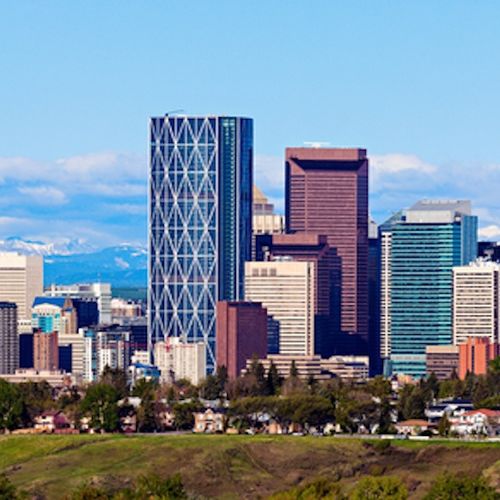Moving from Ontario to Alberta: What Do I Need to Know?
Wondering what you need to know when making the move from Ontario to Alberta? Imagine a life with lower living costs, no provincial sales tax, and wide-open spaces where your dollar stretches further. Whether you’re seeking new career opportunities, a more affordable home, or the stunning beauty of the Rockies, Alberta has so much to offer.
But before you pack your bags, there are key things you need to know. Navigating the housing market, understanding job prospects, and transitioning healthcare and licensing are all crucial steps. Missing any of these can lead to unexpected challenges, so planning ahead is essential.
The good news? This guide breaks it all down for you. From securing a job to registering for healthcare, we’ll walk you through every step of the transition, ensuring your move is as smooth and stress-free as possible. Alberta is waiting—let’s make your relocation a success.
Why Move from Ontario to Alberta?
Alberta offers several advantages for those making the move from Ontario, making it an attractive destination for individuals and families alike.
- Lower Cost of Living: With no provincial sales tax (PST) and more affordable housing, Albertans enjoy a lower cost of living compared to cities like Toronto and Ottawa.
- Job Opportunities: Alberta’s economy is strong in industries like energy, technology, and healthcare, with competitive wages and a lower tax burden.
- Scenic Beauty and Outdoor Activities: From Banff and Jasper National Parks to vast prairies and hiking trails, Alberta offers endless outdoor adventures year-round.
- More Space and Less Crowding: Alberta’s cities are less congested, offering a better quality of life with shorter commutes and more affordable suburban living.
- Entrepreneurial and Business-Friendly Environment: With lower corporate taxes and fewer regulations, Alberta is a great place for starting or expanding a business.
Cost of Living: How Alberta Compares to Ontario

One of the biggest draws for those moving from Ontario to Alberta is the cost savings.
Housing Prices
According to recent real estate data, the average home price in Calgary is significantly lower than in Toronto. The same goes for Edmonton compared to Ottawa. Rent is also more affordable in Alberta, making it a great option for both homeowners and renters.
- Toronto average home price: $1,100,000+
- Calgary average home price: $550,000+
- Edmonton average home price: $400,000+
For a more in-depth look at housing options, check out my listings!
Taxes and Utilities
- No provincial sales tax (PST) in Alberta compared to Ontario’s 8% PST.
- Property taxes in Alberta can be slightly higher, but overall savings on sales tax and fuel costs make up for it.
- Utilities can be more expensive in Alberta due to colder winters and higher electricity rates.
Groceries and Entertainment
- Groceries in Alberta are generally more affordable than in Ontario, with lower prices for essential items like dairy, meat, and produce.
- Entertainment costs, including movie tickets, dining out, and other recreational activities, tend to be more budget-friendly in Alberta’s cities compared to Ontario’s larger urban centers. You can expect to enjoy similar experiences for less, whether you’re catching a movie, going out to eat, or attending events.
Employment Opportunities in Alberta

Alberta’s job market is diverse and growing, with opportunities in:
- Oil and Gas: As Canada’s energy hub, Alberta offers jobs in engineering, drilling, refining, and emerging renewable energy sectors.
- Technology and Innovation: Calgary and Edmonton are developing strong tech sectors, with opportunities in software development, AI, and cybersecurity.
- Healthcare and Education: With a growing population, Alberta consistently needs teachers, nurses, and healthcare professionals.
- Construction and Trades: The construction boom creates demand for skilled trades, including electricians, carpenters, and welders.
To find job opportunities, consider using Alberta-based job boards like Alberta Job Bank or networking through LinkedIn and local industry events.
Transportation and Getting Around in Alberta

If you’re moving to Alberta, understanding the transportation system is crucial.
Getting a Driver’s License and Registering Your Vehicle
- You must switch your Ontario driver’s license to an Alberta Class 5 license within 90 days of moving.
- Vehicles must be inspected and registered in Alberta before they can be insured.
- For official guidelines, visit the Alberta Government Moving Guide.
Public Transportation
- Calgary and Edmonton have efficient public transit systems, but smaller cities rely more on personal vehicles.
- Calgary’s CTrain and Edmonton’s LRT provide quick access to major areas.
- Long-distance bus services like Red Arrow connect cities across Alberta.
Healthcare in Alberta

Healthcare in Alberta is publicly funded and provides residents with access to essential medical services. As soon as you arrive in Alberta, it’s important to register for the Alberta Health Care Insurance Plan (AHCIP) to ensure you’re covered. While Alberta offers comprehensive healthcare services, there are some key steps to follow for registration and a short waiting period for newcomers.
- Apply as soon as you arrive in Alberta to ensure you have coverage as soon as possible.
- You’ll need documents like proof of residency and identification, such as a driver’s license or lease agreement.
- There is a waiting period of up to three months if you’re coming from Ontario, so it’s important to have private health insurance during this time.
- Once registered, you’ll have access to Alberta’s publicly funded healthcare system, which covers essential medical services such as doctor visits, hospital stays, and surgeries.
Learn more at the AHCIP official site.
Education System in Alberta

Alberta is known for its high-quality education system, making it an appealing choice for families. The province offers a range of educational options and a unique approach to K-12 learning. If you’re moving with kids, here are some key differences you can expect from Ontario’s education system:
- Alberta’s K-12 system follows a different curriculum but maintains high standards.
- More school choice, including public, Catholic, charter, and private schools.
- Post-secondary education options include the University of Alberta, University of Calgary, and SAIT.
- For parents, checking out local school boards in your area is essential to understanding the available options and enrollment processes.
Check out my list of top schools in Calgary!
Cultural Differences and Lifestyle

Adjusting to life in Alberta can come with some cultural differences:
- More rural and spread-out communities: Even in major cities, there’s a strong sense of space and nature.
- Colder but sunnier winters: Alberta winters can be harsh, but the province enjoys more sunshine than Ontario.
- A strong entrepreneurial spirit: Many Albertans take pride in business and innovation.
- Outdoor lifestyle: Camping, hiking, and winter sports are extremely popular.
Steps to Move from Ontario to Alberta

To ensure a smooth transition, follow these essential steps:
Plan Your Move
- Decide whether to rent or buy a home in Alberta.
- Research the cost of living in your preferred city, including housing prices, utilities, groceries, and transportation costs.
- Look into the local job market and available services to get a better idea of what to expect.
Secure Employment
- Line up a job before moving or explore job opportunities in Alberta.
- Consider industry certifications required for your field. For example, some professions like healthcare and trades require specific Alberta-based certifications.
- Research the job market in the region you’re moving to, whether it’s in Calgary, Edmonton, or a smaller city, to ensure there are opportunities in your field.
Arrange Transportation
- If driving, check if your vehicle needs modifications for Alberta’s winter conditions. Consider getting snow tires, winter windshield wiper fluid, and other safety adjustments.
- If you plan to use public transportation, research local transit options in your area. Cities like Calgary and Edmonton have reliable transit systems.
Register for Healthcare and Licensing
- Apply for Alberta Health Care (AHCIP) as soon as possible after your arrival.
- Get a new Alberta driver’s license and vehicle registration. Don’t forget to check if there are any specific deadlines for these registrations after your move.
- Familiarize yourself with Alberta’s healthcare facilities, clinics, and emergency services for a smooth transition.
Set Up Utilities and Services
- Arrange for internet, gas, water, and electricity providers. Alberta has several utility providers, so shop around for the best rates.
- Set up mail forwarding through Canada Post and update your address with banks, credit cards, and any subscriptions.
- Consider setting up your cell phone service or checking whether your current provider offers good coverage in Alberta.
Final Thoughts: Is Moving to Alberta Right for You?

If you’re looking for a lower cost of living, job opportunities, and a fresh start, moving from Ontario to Alberta can be a great decision. By planning ahead and understanding the key differences, you can make your transition smooth and successful.
Alberta offers a unique lifestyle with its natural beauty, outdoor activities, and diverse economy. Whether you’re drawn to the vibrant cities of Calgary and Edmonton or the tranquility of rural life, you’ll find a place that fits your needs. With its welcoming communities and high quality of life, Alberta provides ample opportunities for personal and professional growth.
FAQ: All You Need to Know When Moving from Ontario to Alberta
- How long does it take to move from Ontario to Alberta?
The time frame depends on your mode of transportation and moving service, but it typically takes 3-7 days for a long-distance move. - Do I need to change my healthcare when moving to Alberta?
Yes, you must register for the Alberta Health Care Insurance Plan (AHCIP) within three months of arriving. - Is it cheaper to live in Alberta compared to Ontario?
Generally, yes—housing is more affordable, and there’s no provincial sales tax, which lowers overall living costs. - Can I use my Ontario driver’s license in Alberta?
You can use your Ontario license for up to 90 days, after which you must switch to an Alberta Class 5 license. - What are the best cities to move to in Alberta?
Calgary and Edmonton are the most popular choices due to job opportunities, amenities, and vibrant communities. Check out my guides for communities around Calgary here!


